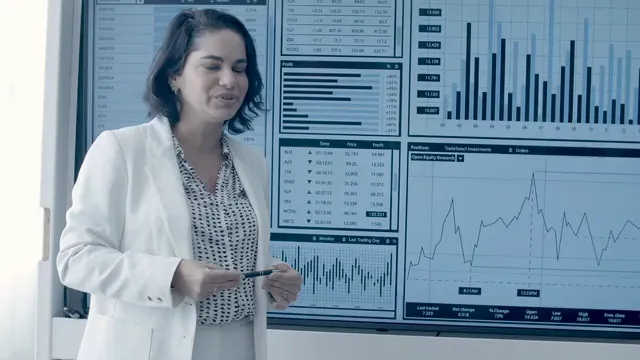Introduction
Pondering whether to double major in economics and statistics? You’re in good company! This combination is gaining traction among students eyeing lucrative career paths. In today’s fast-paced job market, employers are on the lookout for candidates with strong analytical skills and economic insights. So, why does this double major matter now more than ever?
Selecting a major is no small feat. It can shape your academic experience and ultimately steer your career trajectory. Choosing wisely can open doors to exciting opportunities or leave you feeling a tad lost in the vast sea of job prospects.
This post aims to illuminate the benefits of pursuing a double major in economics and statistics. We’ll provide insights, expert opinions, and relevant data to help you determine if this academic path aligns with your goals. So grab your coffee, sit back, and let’s dive into the nitty-gritty of this intriguing educational choice.

The Value of Double Majoring
What is a Double Major?
In simple terms, a double major refers to the pursuit of two distinct majors simultaneously. Think of it as a two-for-one deal in your academic journey! While it requires balancing coursework for both fields, many students find that this combination enhances their understanding and prepares them for the competitive job market.
Statistics show that about 30% of college students opt for a double major. This trend highlights a growing desire among students to diversify their academic portfolios. The world is changing, and so are the skills required to thrive in various industries. A double major can give you that crucial edge when it comes time to enter the workforce.
By combining economics and statistics, you’ll acquire a robust skill set that marries analytical thinking with economic theory. Employers love candidates who can crunch numbers and understand market dynamics. So, if you’re considering this double major, you might just be on the right track to becoming a hot commodity in today’s job market!
If you’re looking for a foundational text to guide you through the complexities of economics, consider picking up a copy of “The Wealth of Nations” by Adam Smith. This classic offers timeless insights into economic principles that are still relevant today!

Benefits of Double Majoring
- Increased Marketability: When you double major in economics and statistics, you boost your employability. Employers love candidates who bring diverse skills. This combo shows you can analyze data while understanding market dynamics. It makes you a hot ticket in fields like finance, government, and consulting. With a double major, you’re not just another resume in the pile; you stand out like a unicorn at a horse show!
- Skill Diversification: This unique pairing equips you with a toolkit of complementary skills. Economics hones your analytical thinking, while statistics sharpens your data interpretation. Together, they create a powerful skill set. Picture this: you can analyze economic trends and back them up with solid statistical data. Employers seek professionals who can blend these skills seamlessly. You’ll be ready to tackle real-world problems, whether it’s predicting market shifts or evaluating policy impacts.
- Networking Opportunities: Double majoring opens the door to a broader professional network. You’ll connect with peers, professors, and industry professionals from both fields. Imagine the conversations at networking events! You can discuss economic theories one minute and dive into statistical methodologies the next. It’s a goldmine for building relationships that could lead to internships and job offers. Plus, your diverse background may attract attention from a wider range of industries.
And if you want to dive deeper into the world of statistics, consider adding “Statistics for Dummies” by Deborah J. Rumsey to your reading list! It’s perfect for demystifying all the statistical jargon!

Potential Drawbacks
- Increased Workload: Let’s face it—juggling two majors means more classes, more assignments, and more exams. Your social life might take a hit as you bury yourself in textbooks and spreadsheets. This added pressure can be daunting. You’ll need to master the art of time management. Balancing coursework for both economics and statistics can feel like a high-wire act without a safety net. Be prepared for those late-night study sessions fueled by caffeine!
- Time Constraints: A double major can extend your time in college. You might think you’ll graduate in four years, but reality might say otherwise. With overlapping requirements and scheduling conflicts, you may find yourself taking extra semesters. This could mean additional tuition costs and a delay in entering the job market. If you have other commitments, like a job or extracurricular activities, the time crunch could lead to stress. It’s essential to weigh these factors carefully before making your decision.
By weighing the benefits and drawbacks of double majoring in economics and statistics, you can make an informed decision that aligns with your career goals and personal aspirations.

Career Opportunities with an Economics and Statistics Double Major
Specific Job Roles
Data Analyst
Data analysts are the detectives of the business world. They sift through data, spotting trends and patterns that help companies make informed decisions. To thrive in this role, you need strong analytical skills, proficiency in statistical software, and a knack for interpreting complex datasets. Familiarity with programming languages like Python or R is a big plus. You’ll often collaborate with teams to turn numbers into actionable insights, making you a valuable asset in any organization.
Economist
Economists study the production and distribution of resources, goods, and services. They analyze data to forecast market trends and develop economic policies. Statistical analysis is crucial in this role, as it helps economists validate their models and predictions. A solid grasp of econometrics and statistical methods will set you apart. Whether you’re advising governments or consulting for private firms, your insights will guide important decisions.
Market Research Analyst
In this role, you’ll dive into consumer data to understand market conditions. Market research analysts blend knowledge from both economics and statistics. They design surveys, analyze data, and provide reports that inform marketing strategies. Your ability to interpret statistical findings and economic indicators will help businesses identify opportunities. Plus, a keen understanding of consumer behavior is essential for developing effective campaigns.
Actuary
Actuaries are the risk assessors of the insurance and finance sectors. They use mathematics and statistics to evaluate financial risks and help companies develop policies that mitigate those risks. A strong foundation in statistics is vital for this role, as actuaries rely on complex models to predict future events. Obtaining certification from a recognized actuarial society is often necessary, making your double major a significant advantage in this competitive field.

Salary Expectations
Graduates with a double major in economics and statistics can expect competitive starting salaries. According to recent data, entry-level positions in these fields often range from $55,000 to $65,000 annually. However, salary can vary significantly based on factors such as location, industry, and the specific role. For instance, data analysts in tech hubs like San Francisco or New York may command higher salaries than those in smaller cities.
Industry also plays a role; graduates entering finance or consulting typically earn more than those in government or non-profit sectors. Additionally, advanced degrees or certifications can further boost earning potential. The combination of economics and statistics positions you well for a variety of roles, making it a lucrative double major.

If you’re keen on understanding more about the intersection of statistics and economics, you might want to grab “Freakonomics” by Steven D. Levitt and Stephen J. Dubner. This book provides a fascinating look at the hidden side of everything, blending economics and statistics in a compelling narrative!

Academic Considerations
Required Coursework
To successfully navigate a double major in economics and statistics, you’ll need to focus on essential courses from both fields. Here’s a breakdown of the key subjects you should expect:
Economics Courses
1. Microeconomics: Understand consumer behavior and market dynamics.
2. Macroeconomics: Explore national economic factors and policies.
3. Econometrics: Learn statistical methods used in economic data analysis.
4. Economic Theory: Study fundamental concepts that drive economic thought.
Statistics Courses
1. Introductory Statistics: Basic principles and methods for data analysis.
2. Probability Theory: Understand the mathematics of uncertainty.
3. Statistical Inference: Learn how to draw conclusions from data.
4. Regression Analysis: Analyze relationships between variables.
Foundational Courses
Both majors require a strong background in mathematics. Essential courses may include calculus, linear algebra, and advanced statistics. Econometrics is particularly important as it blends both economics and statistics, providing a critical skill set for your future career.

This double major offers a robust curriculum, ensuring you not only grasp theoretical concepts but also develop practical skills. Balancing coursework between these two disciplines may be challenging, but the rewards in terms of job readiness and marketability are significant.
To further enhance your statistical acumen, consider investing in “Naked Economics: Undressing the Dismal Science” by Charles Wheelan. This book simplifies complex economic concepts and makes them accessible!

Recommended Schools
If you’re thinking about a double major in economics and statistics, you’re in for a treat! Several universities stand out for their excellent programs in both fields.
First up is the University of California, Berkeley. They offer a top-notch economics program paired with a robust statistics curriculum. Many students love the flexibility and interdisciplinary approach. Plus, the faculty members are known for their research prowess.
Next, consider New York University. Their economics department is well-respected, and their statistics program incorporates modern data analysis techniques. NYU’s location also opens doors to internships in finance and analytics.
Another notable mention is the University of Michigan. Their economics and statistics programs are highly regarded, offering a mix of theoretical and practical knowledge. The faculty engages students with real-world applications, making the learning experience both dynamic and relevant.
Finally, the University of Chicago deserves an honorable mention. Known for its rigorous academic environment, its economics and statistics programs challenge students while providing them with a solid foundation for future careers.

Keep an eye on these schools if you’re serious about this double major!
Advising and Planning
Before you dive into this academic adventure, let’s talk about the importance of meeting with academic advisors. They are the GPS for your academic journey, guiding you through the maze of course selections and requirements. Trust me, they can make your life a whole lot easier!
Creating a feasible study plan is essential. Balancing two majors can feel like juggling flaming torches—exciting, but risky! Your advisor can help you plot out a course load that won’t push you over the edge.
It’s also important to manage your time wisely. Consider taking a mix of core courses and electives each semester. This strategy prevents burnout while keeping your academic life interesting. And don’t forget to factor in breaks! You’ll need those moments to recharge and keep your sanity intact.
By collaborating with advisors and planning effectively, you can navigate the double major waters with confidence and ease.

Expert Opinions and Experiences
Insights from Professionals
When it comes to double majoring in economics and statistics, expert opinions vary, but many see considerable value in this combination. According to Kevin Donohue, who holds a B.A. in Economics and Mathematics from Boston University, “If you aim to work with a bachelor’s degree, statistics may serve you better.” This highlights the immediate marketability of a stats-focused education.
Stefan Stackhouse, a former college finance officer, emphasizes the need for advanced statistics to become a fully qualified economist. He states, “You need advanced statistics—more than the standard minimum for the major.” This reinforces the idea that a solid grounding in statistics enhances your skill set, making you more competitive in the job market.
Murtaza Mughal, who studied economics and science, adds that both economics and statistics offer distinct advantages. He notes, “Your choice should depend on your career aspirations, especially if you are considering advanced studies or careers in quantitative finance or data analysis.” This perspective encourages students to reflect on their long-term goals when choosing their majors.
Surajit Sinha, a Ph.D. holder in Economics, suggests that a background in math is essential for those aiming for higher studies. “Statistics can be beneficial for immediate job opportunities after a BA,” he claims. This underscores the practicality of statistics in the workforce.
Indradeep Ghosh, another expert with a Ph.D. from MIT, believes that while both math and statistics are important, math is foundational for economics. He recommends, “If you must choose one, I recommend math for its foundational significance in economics.”
These insights collectively paint a picture of why double majoring in economics and statistics can be a strategic choice. It equips students with a versatile skill set that opens doors to various career paths. As you consider this combination, keep in mind the advice from those who have navigated similar waters. Their experiences can guide you toward making informed decisions about your academic future.

Alumni Experiences
Graduates who pursued a double major in economics and statistics share their experiences, and the feedback is overwhelmingly positive. Many alumni report that this combination significantly enhanced their job readiness. For instance, one graduate, Sarah, highlighted how learning statistical models alongside economic theories gave her an edge in interviews. She landed a data analyst position right after graduation, attributing her success to her ability to interpret complex datasets effectively.
Another alum, David, noted that the dual focus made him a versatile candidate in the job market. He mentioned, “Employers appreciate candidates who can navigate both economic principles and statistical analysis.” His role as a market research analyst requires him to draw insights from consumer data, a skill he honed during his studies.
The impact of this double major on career progression is also notable. Many alumni reported faster promotions and increased responsibilities due to their unique skill set. For example, Emily, now a policy analyst, explained, “Combining economics with statistics allowed me to contribute to projects that require both analytical and economic insight. It set me apart in my team.”
These testimonials underscore the value of this double major in shaping career paths. Graduates feel they are not just equipped with knowledge but also with practical skills that enhance their employability. In a competitive job market, the ability to analyze data through an economic lens can turn job seekers into top candidates, making a significant difference in their professional journeys.

Conclusion
Double majoring in economics and statistics offers a wealth of benefits and challenges. First, let’s recap the advantages. This combination significantly boosts employability. Employers are on the lookout for candidates who possess a diverse skill set. By mastering both economics and statistics, you position yourself as a valuable asset in various fields, including finance, data analysis, and public policy. Additionally, this double major fosters critical thinking and analytical skills, crucial in today’s data-driven world.
However, it’s not all sunshine and rainbows. The increased workload can be daunting. Managing two sets of coursework means more assignments, exams, and projects. This can lead to stress and may extend your time in college. Balancing these demands requires solid time management and dedication. It’s essential to weigh these challenges against your career aspirations.
If you’re still on the fence about your academic journey, consider equipping yourself with a “The Art of Statistics: Learning from Data” by David Spiegelhalter. This book can help clarify how to interpret data effectively!
In your decision-making process, consider your career goals and interests. Are you passionate about economics? Do you enjoy working with data? If so, this double major could be a great fit. However, if you find the thought of a heavier course load overwhelming, it may be worth exploring other options, such as minoring or seeking internships to gain relevant experience without the full commitment of a double major.

If you’re still on the fence, take action! Speak with academic advisors who can provide valuable insights tailored to your situation. They can help you draft a feasible study plan that accommodates both majors. Also, don’t forget to explore internship opportunities in both fields. Real-world experience can be just as valuable as academic credentials, helping you refine your interests and skills.
FAQs
Is double majoring in economics and statistics worth it?
Absolutely! A double major in economics and statistics can be a game-changer for your career. This combination enhances your analytical skills, making you a strong candidate in various fields. Employers value the ability to interpret economic trends through statistical analysis. Graduates often find themselves in high-demand roles, such as data analysts, economists, or market research specialists. However, it’s essential to consider the potential drawbacks. The increased workload can be significant, and some students may find it overwhelming. It may also extend your time in college, leading to additional costs. Ultimately, the decision should align with your career goals and personal interests. If you’re committed to working in data-driven environments, this double major can provide the competitive edge you need.
What career options are available with this double major?
A double major in economics and statistics opens doors to various career paths. Graduates often pursue roles such as: 1. Data Analyst: Analyze datasets to inform business decisions. 2. Economist: Study economic trends and develop policies based on research. 3. Market Research Analyst: Evaluate market conditions and consumer preferences. 4. Actuary: Assess financial risks using statistical methods. 5. Policy Analyst: Research and analyze policies affecting economic conditions. These roles leverage the unique skills gained from both majors, providing graduates with a robust foundation to excel in their careers.
How do I manage the workload of a double major?
Managing a double major requires careful planning and organization. Here are some strategies: – Create a Study Schedule: Plan your semester in advance, balancing core courses and electives. – Prioritize Tasks: Focus on high-impact assignments first to manage stress. – Seek Support: Utilize academic advisors and study groups to stay on track. – Stay Organized: Use tools like planners or apps to keep track of deadlines and commitments. By implementing these strategies, you can navigate the demands of a double major more effectively.
Are there specific skills I should focus on developing?
Absolutely! Here are key skills to develop: – Analytical Skills: Enhance your ability to interpret data and economic models. – Statistical Software Proficiency: Familiarize yourself with tools like R, Python, or SQL. – Communication Skills: Learn to convey complex ideas clearly to diverse audiences. – Problem-Solving Abilities: Cultivate critical thinking to tackle real-world issues. Focusing on these skills will prepare you for success in your double major and future career.
What if I am unsure about double majoring?
If you’re unsure about committing to a double major, consider alternatives. A minor in either field can still enhance your resume without the full workload of a double major. You might also explore internships or relevant coursework to gain experience in both areas. This way, you can assess your interests and career aspirations without the pressure of a double major. Remember, there are many paths to success, and finding the right fit for you is what truly matters.
Please let us know what you think about our content by leaving a comment down below!
Thank you for reading till here 🙂
If you’re interested in enhancing your understanding of statistical concepts, check out this AP statistics formula sheet that can provide valuable insights.
All images from Pexels




